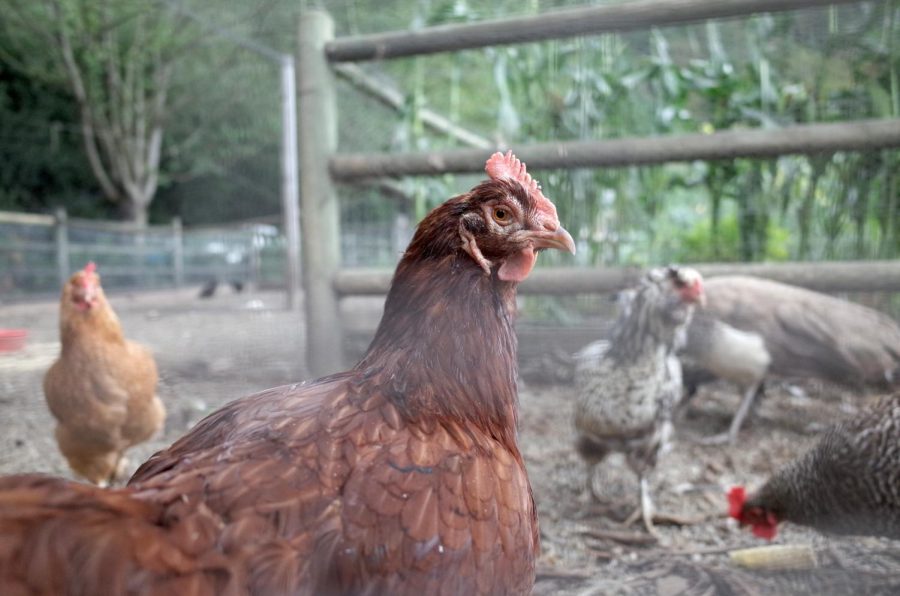No fowl play: Kent residents learn to raise legal backyard chickens
This photo, “hen” is copyright (c) 2013 swallowsan and made available under an Attribution 2.0 Generic license.
February 6, 2019
Curious Kent residents and chicken enthusiasts alike filled the Kent Free Library meeting room Tuesday evening to learn the art of raising hens in town — an activity that was illegal until recently.
In October, Kent City Council passed an ordinance amending a section of the city’s Codified Ordinances that regulates farm animals and livestock. Under the new ordinance, in-town property owners can keep up to six hens in their backyard without a permit.
At Tuesday’s meeting, a panel of chicken experts gave instruction on proper care of egg-laying hens. Mike Jones from Tierra Verde Farms gave the audience a warning before his presentation: when you start raising chickens, it “gets into your blood” and you won’t want to stop.
Jones advised attendees to keep their hens’ water clean, saying it is the most important aspect in allowing the birds to flourish. He warned that chickens can not control their bodily functions and will accidentally defecate in the water trough if it’s shorter than their backs. He said more expensive water devices like bell waterers will stay cleaner.
Keeping the hens healthy is important for their egg-laying, so great attention was given to health. Kristen Pool from Black Dog Acres farms described various health issues chickens can suffer from, including respiratory diseases, mites and internal worms. One especially concerning situation is when the chicken leans back in an upright position — a stance known as “penguining.” Pool and other panelists warned that the penguin stance is often a sign of a life-threatening illness.
Two Kent City Council members, Gwen Rosenberg and Heidi Shaffer, were on hand to explain the city’s new chicken policy. They emphasized that coops must be constructed 30 feet from a property owner’s rear property line and 10 feet from the side property line. A maximum of six chickens — and only adult females — can be kept in town. Residents are not permitted to slaughter the hens on site.
The chicken legalization came last October via unanimous vote in city council after a similar law was voted down in 2011. At that time, and in the time since, the Citizens League for Urban Chickens, or CLUCKent, has been an advocate for backyard hens in Kent.
In an October interview with KentWired, CLUCKent founder Laurel Hurst lauded backyard hens as environmentally friendly and non-intrusive for neighbors.
“Hens are, at their very loudest, even when they cackle when they lay an egg, are not louder than a car passing by your house,” she said. “When they’re maintained on a once-a-week basis, they are practically odorless. They can make good use of every bit of compostable waste that comes out of your home, and make it into a very, very healthy and low environmental impact source of protein.”
And now, Kent residents are gearing up to achieve those environmental benefits — legally — in their own backyards.
Bryan Vohsing contributed to this report.
Dylan Reynolds is the engagement director. Contact him at [email protected].

























